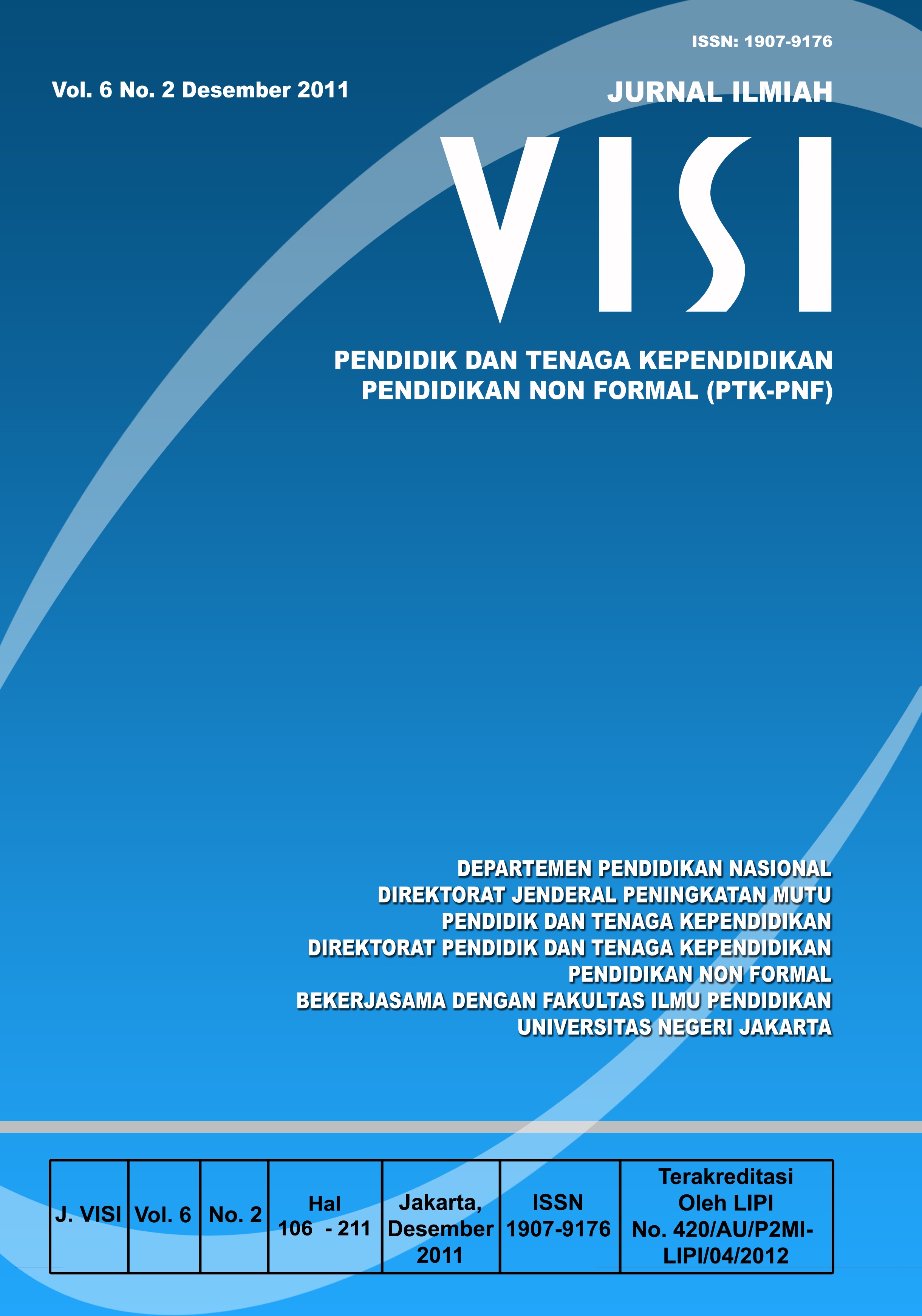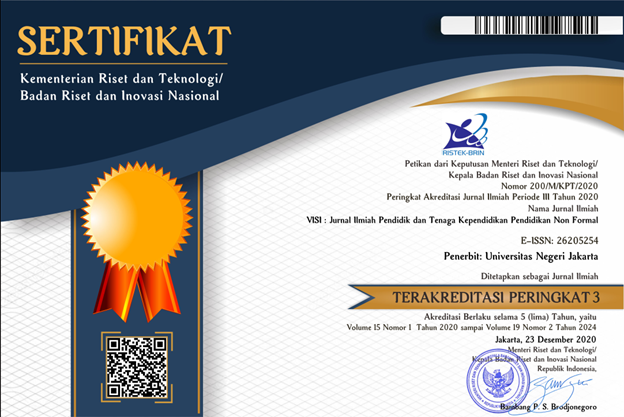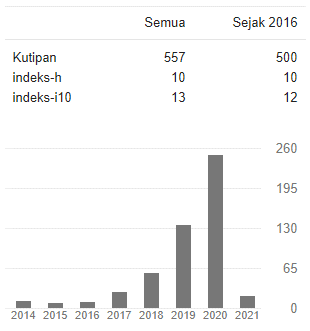PENGEMBANGAN MODEL PELATIHAN PERMAINAN TRADISIONAL EDUKATIF BERBASIS POTENSI LOKAL DALAM MENINGKATKAN PENGETAHUAN DAN KETERAMPILAN ORANG TUA ANAK USIA DINI
DOI:
https://doi.org/10.21009/JIV.0602.8Keywords:
early childhood education, traditional game, local potentialAbstract
The aim of this research is to deliver a training model that can increase the knowledge and skill of the parents of the early children to perform education in the family environment. To reach the goal it is developed the educative traditional game based on the local potency. After attending the training, it is expected that the skill and knowledge of the parents in applying the traditional game can be increased.The method of this study is research and development model. The subject of the research was the parents of the early-age children who were staying to take care of their children during their study at the PAUD Kota Gorontalo, 50 of which were used in the previous study and the other 40 were used in the model implementation, and they were divided into two groups, the experiment and control groups (20 for each).The purposive sampling, the test, interview, questionnaire, and documentation study were applied in this research. It applied the quasy experiment (Non Equivalent Group Pretest-Posttest Design). The research result indicates local potency based educative traditional game model has effectively increased the knowledge and skills of the early age children’s parents at PAUD Kota Gorontalo.
Downloads
Published
How to Cite
Issue
Section
License
Authors who publish with this Journal agree to the following terms:
- Author retain copyright and grant the journal right of first publication with the work simultaneously licensed under a creative commons attribution licensethat allow others to share the work within an acknowledgement of the work’s authorship and initial publication of this journal.
- Authors are able to enter into separate, additional contractual arrangementfor the non-exclusive distribution of the journal’s published version of the work (e.g. acknowledgement of its initial publication in this journal).
- Authors are permitted and encouraged to post their work online(e.g. in institutional repositories or on their websites) prior to and during the submission process, as it can lead to productive exchanges, as well as earlier and greater citation of published works.
- Users/public use of this website will be licensed to CC BY-NC-SA Creative Commons Attribution-NonCommercial-ShareAlike 4.0 International License









